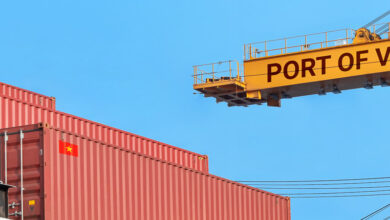China’s 34% Tariff on U.S. Goods: An Expert’s Take on America’s Economic Backlash

China has implemented a 34 percent import tariff on selected American goods in response to trade policies adopted during the administration of former U.S. President Donald Trump. This measure has been characterized by Professor Rossanto Dwi Handoyo, an expert in international economics at the Faculty of Economics and Business at Universitas Airlangga, as a reactive move reflecting China’s long-term considerations regarding U.S. trade practices.
Historical data indicates that the United States has frequently faced trade deficits, particularly with China, which exceeded $1 trillion prior to the COVID-19 pandemic. Professor Handoyo argues that while the U.S. government perceives its tariffs as necessary actions against unfair trade practices, these retaliatory tariffs from China may pose greater risks to the American economy.
Impact on Global Trade Dynamics
Professor Handoyo has expressed concern that reciprocal tariffs could severely disrupt global supply chains, given that many products depend on components produced in various countries. He highlighted that consumer prices for electronic items, such as laptops, could rise substantially if tariffs are enacted among the U.S., China, and other nations involved in their production.
He further warned that sustained trade conflicts might lead to a significant contraction in global trade volumes, potentially decreasing by up to 50 percent, drawing parallels to the economic downturn experienced during the Great Depression.
Risks to Foreign Direct Investment
The ongoing trade conflict could also threaten foreign direct investment (FDI), as increased global uncertainty drives investors to adopt a more cautious approach. According to Professor Handoyo, many investors may delay expansion initiatives, while those involved in portfolio investments might seek safe-haven assets like gold, which could see price increases amid ongoing trade uncertainties.
Indonesia’s Strategic Approach
Looking forward, Professor Handoyo advises that Indonesia should maintain a flexible and negotiable stance in light of these developments. He noted that Indonesia’s export volume is relatively low compared to other ASEAN countries, and retaliating with tariffs could have negative repercussions by allowing competitors to easily replace Indonesian products. This scenario could result in diminished production levels, job losses, and broader social implications.
To safeguard its economic interests, Indonesia is encouraged to uphold strong trade relations with the United States and take advantage of trade benefits available through the Generalized System of Preferences (GSP), as long as they are applicable.
(Source: Universitas Airlangga)




